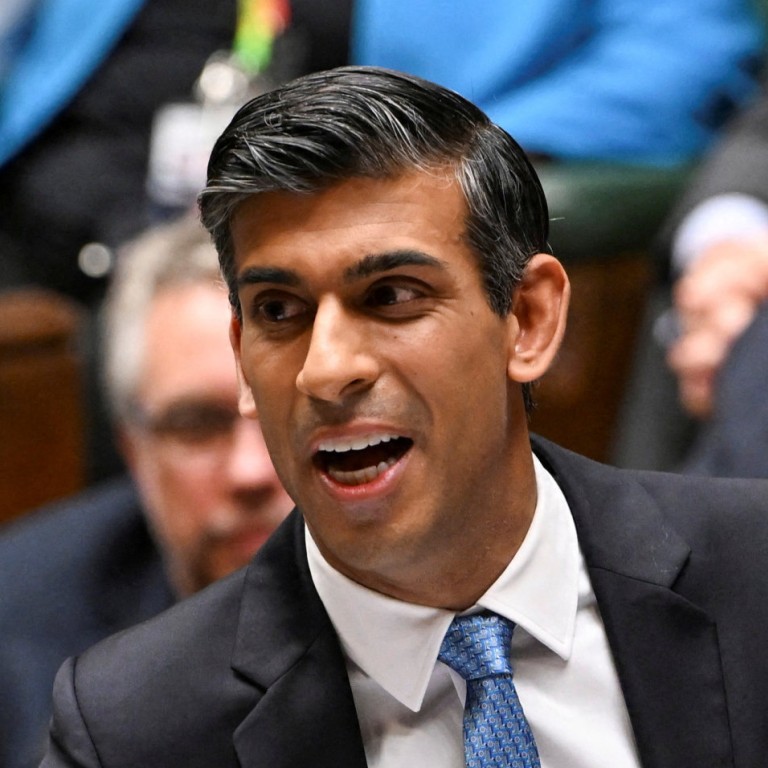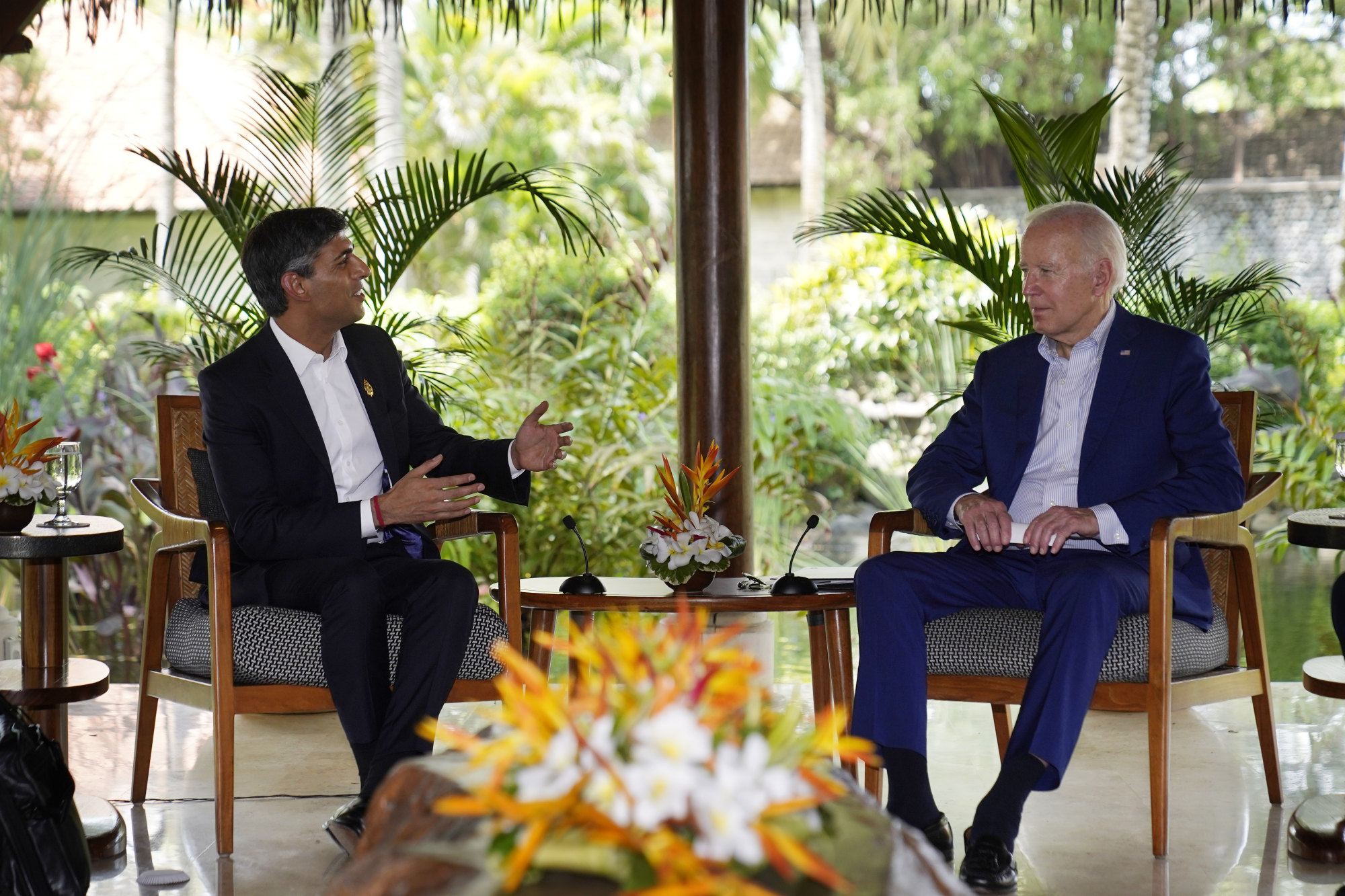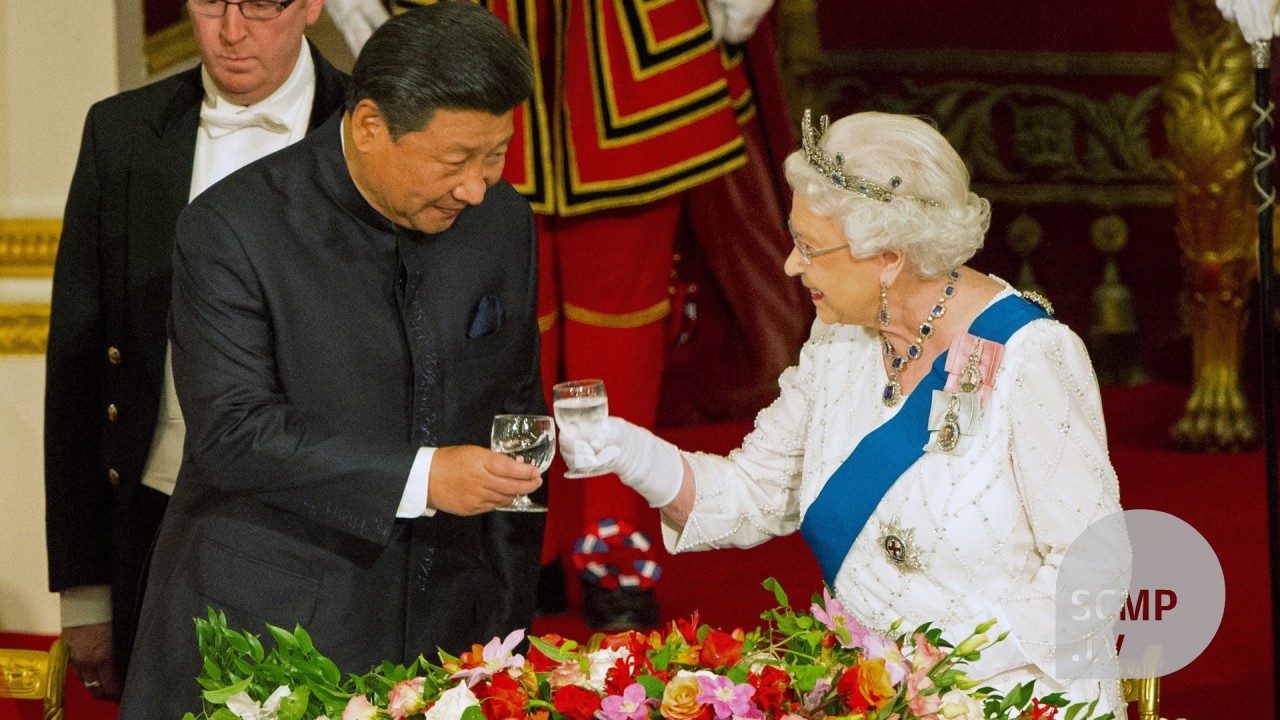
Rishi Sunak says UK must ‘evolve’ China foreign policy in face of ‘systemic challenge’
- So-called golden era between the two countries is over and new approach needed in bilateral relations, Sunak says
- China poses a ‘systemic challenge’ to Britain’s values and interests, PM says
The idea put forth in prior Tory administrations that trade would lead to social and political reform in China was naive and a new approach to relations with Beijing is necessary, Sunak said.
“We recognise China poses a systemic challenge to our values and interests, a challenge that grows more acute as it moves towards even greater authoritarianism,” he said in a speech at the Lord Mayor’s Banquet in London.
British prime ministers have traditionally used the annual banquet, which celebrates the newly elected lord mayor of the City of London, to address business leaders, international dignitaries and policy experts.
“In the face of these challenges, short-termism or wishful thinking will not suffice,” Sunak said. “We can’t depend on Cold War arguments or approaches, or mere sentimentality about the past.”
British government bars Chinese-made security cameras from sensitive sites
“This means being stronger in defending our values and the openness on which our prosperity depends,” he added.
“It means delivering a stronger economy at home, as the foundation of our strength abroad. And it means standing up to our competitors, not with grand rhetoric but with robust pragmatism.”
However, Sunak has been working to burnish his foreign policy credentials.

Sunak is widely expected to take a more pragmatic approach to Beijing than his predecessor, who had sought to label China a “threat” alongside Russia as part of an ongoing refresh of the British government’s integrated review of defence and diplomatic strategy. The Asian power was previously labelled a “systemic competitor” in last year’s review.
Shoplifting soars in UK as highest inflation for decades hits price of basics
“By deepening these ties we’ll help protect the arteries and ventricles of the global economy, supporting security and prosperity – both at home in our European neighbourhood and in the Indo-Pacific,” he said.


